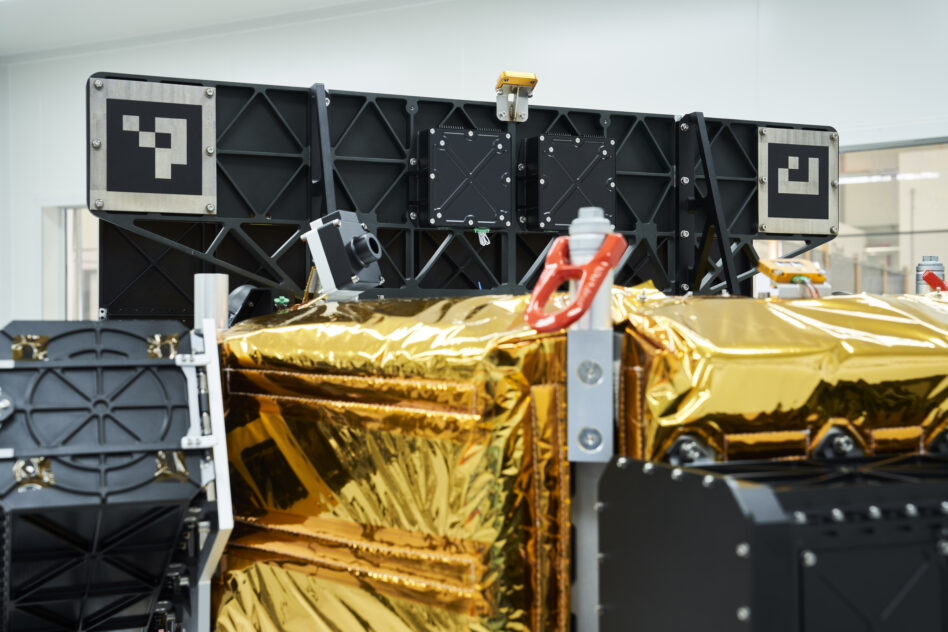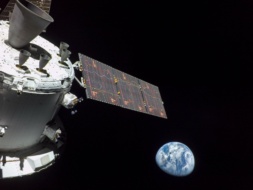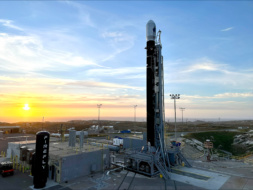Orbit Fab, a US-based company building in-space refueling infrastructure (i.e., orbital gas stations), announced this morning that it is teaming up with the Aussie-based Space Machines Company (SMC) to attach more efficient docking hardware to SMC’s orbital transfer vehicle, which is expected to launch next year.
The in-space servicing economy can only reach its full potential if servicers can dock with other objects in orbit while whizzing around at tens of thousands of miles per hour—a difficult feat that a new international partnership is aiming to make a lot easier.
“For all of these types of vehicles, which are maneuverable vehicles in space, refueling just makes their business case a lot better,” Orbit Fab CCO Adam Harris told Payload. “This is one method to extend those sorts of things and be able to do it much simpler than if you have an unknown object you’re going to grab.”
QR codes in space: Docking with an unprepared object in space is very difficult. Orbit Fab has a relatively simple solution: equipping spacecraft that may eventually need servicing with “fiducial markers,” a kind of QR-code-like piece of hardware that helps a servicer’s docking algorithms to figure out exactly how a target is oriented.
“If you don’t have a spacecraft prepared for docking, it’s a lot harder, because you need to analyze an image to find a reference point, you need a model of the spacecraft, you need to model that spacecraft in different lighting conditions, different angles, in six degrees of freedom,” CEO Daniel Faber told Payload. “If you carry a QR code, if you carry one of these fiducial markers, then the algorithms for that are decades old.”
Orbit Fab worked with SMC to work out some of the specs for the fiducial markers, and completed most of the design in house. The markers are available commercially to customers for ~$2,000 a pop.
Under the agreement, SMC has also equipped its Optimus servicer, scheduled to launch on Transporter-10 no earlier than March 2024, with fiducial markers.
Orbit Fab gears up: The gas-stations-in-space company is working on a lot more hardware than just its QR code spacecraft attachments. It’s currently in the process of shipping its RAFTI (Rapidly Attachable Fluid Transfer Interface) refueling port to customers.
- Orbit Fab is currently capable of manufacturing up to ~100 RAFTIs per year, Harris said.
- The company is exploring partnerships to bump up that cadence to meet demand from constellation operator customers.
The coming year is expected to be a busy one for Orbit Fab as it ramps up to start offering hydrazine refueling services in GEO in 2025 (for the low, low price of $20M per 100 kg of fuel). The company is making good progress toward several government missions that are targeting launch in 2025, and has notched several design reviews on the way.




